The Memory of the World Programme is intended to protect the world’s documentary heritage for future generations while its registers are meant to create global awareness of specific items held by individual countries.
It is essential therefore that there is a broad understanding about the scope of the Programme, the different supports on which heritage is recorded as well as the contribution it makes to UNESCO‘s mission of peace-building, poverty eradication, sustainable development and intercultural dialogue.
With this in mind, UNESCO will publish a series of articles, highlighting selected items listed on its Memory of the World Register and linked to an International Day, to better depict how legacy items can contribute to achieving present-day objectives. The articles will also hopefully serve to awaken curiosity to learn more about the goals of the Programme.
List of stories published:
With this in mind, UNESCO will publish a series of articles, highlighting selected items listed on its Memory of the World Register and linked to an International Day, to better depict how legacy items can contribute to achieving present-day objectives. The articles will also hopefully serve to awaken curiosity to learn more about the goals of the Programme.
List of stories published:
In Focus
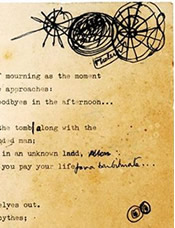 Spotlight on Memory of the World Heritage: Reading is food for the soul
Spotlight on Memory of the World Heritage: Reading is food for the soul
20-04-2011
UNESCO’s Memory of the World register includes the world’s oldest known book printed using movable metal type, the Gutenberg 42-line Bible and numerous collections relating to the work of noted writers such as Hans Christian Andersen, Astrid Lindgren, Christopher Okigbo and Derek Walcott among others.
In Focus
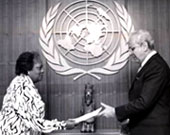 Spotlight on Memory of the World Heritage: Empowerment for women
Spotlight on Memory of the World Heritage: Empowerment for women
02-03-2011
8 March commemorates International Women's Day and UNESCO’s Memory of the World Register lists records relating to women's issues such as the historic 1893 decision by New Zealand to give women the right to vote.
In Focus
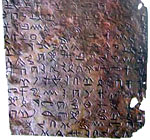 Spotlight on Memory of the World Heritage: Languages lost and found
Spotlight on Memory of the World Heritage: Languages lost and found
17-02-2011
The International Mother Language Day, proclaimed by UNESCO in 1999, is observed every year on 21 February. UNESCO’s Memory of the World Register mirrors the fate of the world's languages: one that was saved, one that was lost and the prototype of all modern alphabets.
In Focus
 Spotlight on Memory of the World heritage: The horrors of the Holocaust
Spotlight on Memory of the World heritage: The horrors of the Holocaust
31-01-2011
UNESCO’s Memory of the World Register includes different testimonies of the Holocaust in which some six million Jews and millions of others died during the Nazi regime.
In Focus
 Spotlight on Memory of the World heritage: Human rights: The search for truth and reconciliation
Spotlight on Memory of the World heritage: Human rights: The search for truth and reconciliation
09-12-2010
Human Rights Day, 10 December, is an opportunity to recall the importance of the Universal Declaration of Human Rights. UNESCO’s Memory of the World Register includes archives relating to human rights abuses in Argentina, Chile, the Dominican Republic, Paraguay, Cambodia and the Baltic States.
In Focus
 Spotlight on Memory of the World: Inventions and discoveries that changed our world
Spotlight on Memory of the World: Inventions and discoveries that changed our world
05-11-2010
UNESCO’s World Science Day for Peace and Development celebrates the contribution science makes to achieving sustainable development and peaceful societies. Its Memory of the World Register includes archives of the work of people who were on the frontline of scientific invention.
In Focus
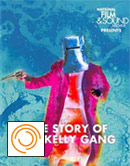 Spotlight on Memory of the World heritage: An audiovisual window on the world
Spotlight on Memory of the World heritage: An audiovisual window on the world
20-10-2010
UNESCO’s Memory of the World Register includes France’s Lumière films that were the first to capture the lives and customs of people in countries in Europe and elsewhere, the world’s very first feature length narrative film made in Australia in 1906, newsreels from 1960 to 1990 that view world events through Cuban eyes, and footage tracing the final years of apartheid and the birth of democracy in South Africa.
In Focus
 Spotlight on Memory of the World heritage: Educational reform in Poland and Nicaragua
Spotlight on Memory of the World heritage: Educational reform in Poland and Nicaragua
03-09-2010
UNESCO’s Memory of the World Register includes archives detailing Poland’s creation, in the 18th century, of the world’s first ministry of education and a Nicaraguan collection, including objects from t-shirts to diaries, dating from its successful national literacy campaign in the 1980s.
In Focus
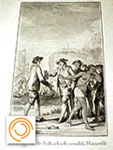 Spotlight on Memory of the World heritage: Slavery in the Caribbean and Latin America
Spotlight on Memory of the World heritage: Slavery in the Caribbean and Latin America
20-08-2010
UNESCO’s Memory of the World Register includes archival collections relating to slavery in Spanish and British colonies in the Caribbean and Latin America that document the suffering and maltreatment of slaves, and the unraveling of Britain’s transatlantic slave trade.





 More
More